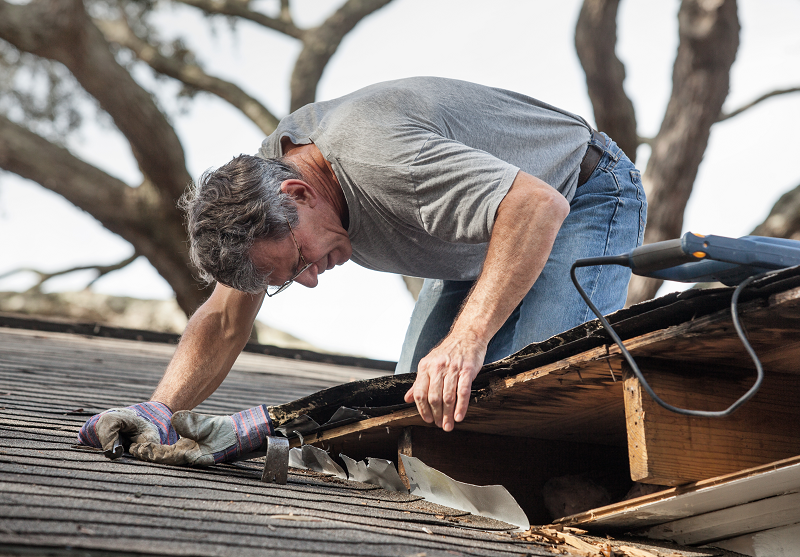
With a red hot real estate market making homeowners consider selling their homes and moving to greener pastures, you may also be in the market to put your house up for sale. After all, with the median home price hovering just above $400,000, the chance to make money in real estate is still available.
You might also be a home seller moving across the country or another town. Getting your home ready for sale can be stressful, especially if you see an overwhelming amount of minor repairs. So when you sell your home, you may need to resist the urge to burst into a flurry of activity fixing every issue.
Fear not, reader! We are here to help guide you through getting ready to sell a house fast in Wisconsin. So before you get your drywall mud and touch-up paint brush, we need to go over where to focus your efforts instead of wasting them.
Things to Fix When Selling a House
You may be hoping to avoid spending too much money on repairing a home you will no longer be living in shortly, but we have to be honest: you will be spending money on repairs if they are warranted. Set your expectations to help your real estate agent know where energy is focused. You want the maximum asking price you can get, so know that first impressions go a long way during resale.
First off, we want to discuss the minor things. Yes, it is wise to fix minor issues around the home, such as holes in the wall, leaky faucets, and ensuring that one spindle on the stairway is secure. These are quick fixes with low investment – especially if you already have the tools to fix them.
Do you have a broken window? Fix it. How about some dated ceiling fans or lights that are hideously out of date? Go ahead and replace them. What about a custom paint job that could take a potential buyer out of the fantasy of living in your home? Paint that room something neutral.
The job, for you as a homeowner, is to make cosmetic fixes that do not draw attention.
Then there are the significant fixes — things like getting your HVAC inspected and serviced should be on your to-do list. Call a roof inspector to give their thoughts on any potential repairs.
Major foundation issues will also come under a critical eye during the due diligence process by a potential buyer. Inspection reports become gospel during a sale but work with your realtor to game plan what is necessary to fix before you close on the home sale.
Knowing the Right Repairs to Make
The home selling process invites anyone to come and judge every detail about your home. Unfortunately, cosmetic flaws can stop a buyer in their tracks. Still, homeowners must take a logical approach to repairing things in a potential sale.
If you have money to spend, you might start with a home inspection of your own to help you know what may become an issue during the sale. The home inspector’s report can serve as a guide to help you discover the crucial repairs versus the ones a future homeowner can repair later.
But certain repairs or upgrades can be a return on investment for your home’s value. For example, what might start as a simple repair job in the kitchen might turn into an upgrade that can increase the home’s value and the potential market price. It is not an old wives’ tale that upgrades in the kitchen and bathroom carry the most bang for the buck.
Consider minor repairs at first that can increase a home’s value, such as a paint job that returns rooms in your home to neutral colors. Even a few new light fixtures can help.
Difference Between Minor and Major Repairs
Minor home repairs are the types of repairs homeowners can handle without much investment. Cleaning your home’s exterior with a pressure washer is one item. Removing stains from a carpet is another.
Major repairs can become significant investments depending on the types of necessary fixes. These fixes include roof installation, adjusting the home’s foundation, or a total HVAC replacement. These fixes, however, can increase the value of your home.
A house with a new roof will sell faster than one with a 15-year-old roof. HVAC system replacement helps foster a more energy-efficient home. A home foundation repair lets a potential buyer know that the home is on solid, level ground.
If you are selling a house as is when it needs repairs, there may be too many pressing issues outside the scope of your budget. An as-is sale might be worth less, but it will get the home off your books quicker.
Whatever your choice – making repairs or selling as-is – you can still walk away from the deal with some return on investment if you make wise and calculated repair choices. Your sale price will thank you.
Are Cosmetic Repairs Worthwhile?

Cash home buyers in Oshkosh can look at a crack in a wall and tell you it is a deal-breaker. Homeowners like yourself do not want that. Some cosmetic repairs are worth every penny. We are not telling you to cover up all the cracks, but we will say getting the foundation checked before you slap drywall mud on the wall will tell you plenty.
Still, cosmetic fixes during the selling process can help place a prospective buyer in a position to make an offer. Humans are visual beings, so we like it when we see homes with little to no work necessary on the surface level.
No one is telling you to go hog wild here, either. A cosmetic fix is a repair completed in a few hours with the correct tools – not a total renovation. We recommend things like maintaining the landscape and curb appeal regularly.
Small things like missing knobs on kitchen cabinets, drawers that groan when you open them, or making sure a door closes properly are a plus. Even shining up your granite countertops can make them look new.
The point here is that if you can fix it, then fix it! The smallest of fixes can go a long way.
What Not To Fix When Selling a House
Selling a house that needs a lot of work can make a homeowner feel like the world is against them, but there are things you can cross off your list before you make an appointment with a realtor.
Appliances
First off, if you plan on leaving your old appliances behind, there is no need to replace them. The average homebuyer spends anywhere from $5,000 to $10,000 on a home within the first year of owning it. A healthy slice of that money goes into buying new appliances.
Unfinished Renovations
You will also want to hold off on finishing any substantial renovations. The new homeowner has the opportunity to place their vision into the renovation instead of sticking with your vision. Home improvement does not need to go much further here.
Upgrading to Trends
Stay away from trends. Think of how many homeowners will rip shiplap off the walls in the next 20 years. What might be cool today will not be in a decade or less. Just ask all the shag carpets that once covered beautiful hardwood floors.
Old Windows
Old windows are another item to skip. Repairing the broken ones is an acceptable (and encouraged) option, but dropping thousands into new windows is a waste of money during this crucial process. New homeowners may want to take advantage of energy efficiency tax credits set to expire next year.
Plumbing
Do not get us wrong here because you should fix any plumbing leaks that could cause wall or foundation damage, but do not go crazy with replacing pipes.
Plumbing is a part of a home’s infrastructure built to last. So unless your home has old, cracked cast-iron pipes causing significant issues such as water damage, there is no need to waste money here.
Electrical Wiring
Electrical wiring can cause a fire, but minor electrical issues like a light switch that does not work or a loose outlet are not crucial to the sale of your home. Electrical only becomes an issue when it is a safety hazard.
Conclusion
Selling your home can be an exciting yet stressful experience. Not only are you preparing your home for its next owner, but you are winding down your life at a place that provided many things to you.
Remember, if you can fix a minor issue in your home before selling it, then repair it yourself. Only fix significant issues that are crucial to the sale of your home. Seek to fix problems that can result in increasing your home’s value.
With these tips in mind, you and your realtor can establish a game plan to ensure your home is off the market in a few weeks. The bottom line is this: be prepared to do some work, but a total home makeover is unnecessary.
